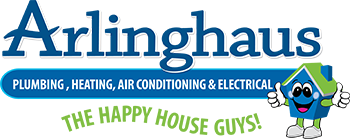You already know that every time you turn on the furnace this fall, you’re spending money. Now is the time to look at it in terms of what you gain. When you consider your HVAC system as pieces of equipment on which you can either save or lose money, you realize that you actually have a fair amount of control over your expenditures. Follow these three ways to promote your HVAC system output, and you will reap the benefits.
1. Create a Maintenance Plan that Ensures Efficiency
There are two basic approaches you can take to managing your HVAC system. The first is a take-charge plan that has you staying ahead of problems and confirming that all systems are working well. The second involves just going along and hoping that nothing really expensive breaks. It’s not difficult to guess which approach leads to the best home energy efficiency over time. Plan ahead for HVAC maintenance, and you will not regret a dime or minute of time invested.
Perform Seasonal Upkeep
Keeping up expensive pieces of machinery seems like it ought to be very complicated, but this is not entirely accurate. There are a lot of ways that you can promote the efficacy and lifespan of your HVAC system without much of your time or a lot of expertise: Locate your air filters and check them at least every three months. As you shut down your air conditioner for the fall, or switch your system from heating to cooling in the spring, take the time to make sure that your air conditioner, furnace and heat pump are clean and seem to be functioning appropriately.
Schedule Professional Maintenance
While it’s important to keep an eye on your system, it’s also a good idea to keep a regular, twice annual maintenance schedule even if your HVAC or filters aren’t showing any obvious signs of wear. After all, it’s best to have a profession take a good look at your equipment, so that you know it’s going to work before you need it. An HVAC professional can examine all the internal components of your furnace and HVAC system, including fuel connections, air conditioner refrigerant, coils, burners and filters. Your technician should be able to identify parts that require repair or replacement before they cause the whole appliance to stop working. This regular upkeep from year to year will increase your HVAC output, increase the lifespan of the equipment, and may even save you money on your utility bills.
2. Select the Right System for Your Needs
Each piece of machinery in your HVAC system is designed to work perfectly within your home. When you buy an air conditioner or furnace, it is crucial that you select a model that is neither too large nor too small. Furnaces are measured by size, efficiency and the number of stages. Choose the right components for your needs, and you will feel many years of comfort and home energy efficiency.
Furnace Efficiency
It’s fairly easy to determine the maximum efficiency of a given furnace model. As you shop, look for the Annual Fuel Utilization Efficiency (AFUE), which tells you the percentage of fuel that is converted directly to heat. Although most furnaces lose efficiency over time, you can reasonably expect that a new furnace has the potential to maintain its maximum efficiency. Furnaces with an AFUE of 95 or higher can cost more, but there is value in efficiency, and you may be able to use rebates or tax credits to help reduce your costs. A more efficient machine will also reduce your energy consumption, which saves you money over its lifespan.
Furnace Stages
Older furnaces function without the benefit of stages. Either the furnace is on and blowing as much warm air as possible, or it’s not active at all. The current, preferred technology is a two-stage furnace which allows your furnace to maximize efficiency by avoiding this all-or-nothing approach to heating. There is a high stage and a low stage. If the thermostat calls for the furnace to change the temperature only by a couple of degrees, the lower stage is used. This switch between stages encourages lower fuel consumption and greater overall efficiency.
Air Filters
If you purchase a new furnace, you should also take a look at the air filters. While you may like the brand or make you’re currently using, a new unit may recommend or require a different level of filtration. If you struggle with seasonal allergies or you live in a particularly dusty or dirty area, ask your HVAC technician about the benefits of increasing the Minimum Efficiency Reporting Value (MERV) rating of your furnace air filters.
Whatever filtration you choose, make sure that your air filters are changed at least every three months, or more frequently if the filter itself calls for it.
Thermostats
There are many small but important components of your HVAC system, and your thermostat is probably the most crucial. The latest high-efficiency furnace will not work quite as well as it should if you’re still using an old, manual thermostat. As you shop for a furnace, consider getting a new programmable thermostat, as well. Some of the newer smart thermostats can even hook into your Wi-Fi and allow you to monitor your energy consumption or change your settings from your computer or smartphone.
3. Minimize Common HVAC Service Misdiagnoses
When you notice that there is a problem with your furnace or air conditioner, you’re eager to have it repaired. It’s difficult to go even a few days without heat or cooling, particularly when it is cold or hot outside. However, you should know that there are some diagnoses to HVAC problems that may not necessarily be correct. Air conditioner compressor failure and a cracked heat exchanger are the most common.
The Problem
An HVAC misdiagnosis has two potential effects: First, you may have to pay a great deal more to replace a component (e.g. an air conditioner motor) that is not actually the cause of your problem. The second is that replacing the wrong part does not actually solve the problem. For example, the compressor may fail from something as simple as dirty coils. Replacing the motor does not clean the coils or solve any other potential problem, increasing the likelihood that the system will quit working again.
Avoiding Misdiagnosis
Most HVAC problems, like a broken compressor, are a simply costly nuisance, but there are some issues, like a cracked heat exchanger, that can be legitimately dangerous. So, you don’t want to wait too long to decide on your course of action, but additional examination could possibly save you a lot of money and hassle in the long run. As a general rule, you should take time to consider any repair quote that requires extensive service or replacement. A second opinion, especially if it brings up a possible alternate cause for your problems, will be worth the money and an extra day or two of investigation.
Anyone who has ever taken a serious look at their energy bills realizes that heating and air conditioning concerns much more than just comfort. If you put your time and money into establishing a maintenance plan that keeps your system running smoothly, choosing a system that is ideal for your home, and making repairs that solve the HVAC problems you face, you will improve your home energy efficiency and keep a comfortable space from one year to the next.


